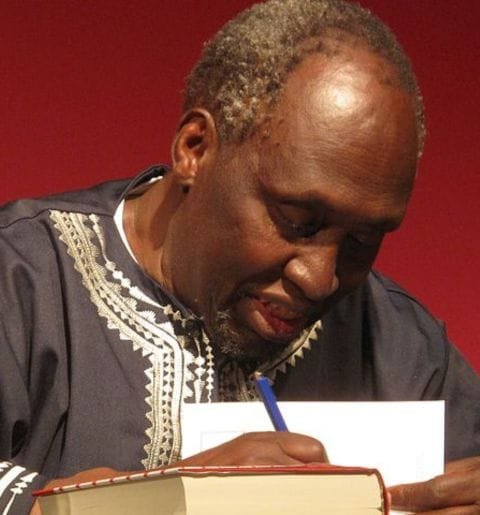
Ngugi wa Thiong'o
Ngũgĩ wa Thiong’o, born James Ngugi on January 5, 1938, in Limuru, Kenya, is a towering figure in African literature and a fierce advocate for cultural decolonization. Educated at Makerere University in Uganda and the University of Leeds in England, he emerged as a leading voice in East Africa with his debut novel, Weep Not, Child (1964), the first major English-language novel by an East African author. His early works, including The River Between (1965) and A Grain of Wheat (1967), explore the tensions of colonialism and the Mau Mau uprising, blending personal and collective struggles for Kenyan independence. By the 1970s, Ngũgĩ rejected his Christian name and colonial linguistic norms, adopting his traditional Kikuyu name and committing to writing in Gikuyu, a radical shift that underscored his belief in African languages as vehicles of authentic cultural expression.
Ngũgĩ’s activism extended beyond literature. In 1977, his play Ngaahika Ndeenda (I Will Marry When I Want), co-written with Ngũgĩ wa Mirii, critiqued Kenya’s postcolonial elite and led to his imprisonment without trial for nearly a year. During this period, he composed Devil on the Cross (1980) on toilet paper, a seminal work in Gikuyu that allegorized exploitation under neocolonialism. His novel Petals of Blood (1977) further condemned corruption and economic inequality, cementing his reputation as a social critic and provoking government retaliation, including exile from Kenya. These experiences fueled his essays, notably Decolonising the Mind (1986), which argues for linguistic liberation as central to Africa’s cultural and political sovereignty.
After decades in exile, Ngũgĩ returned to Kenya in 2004 but faced a violent attack, believed politically motivated, underscoring his enduring challenge to authoritarianism. His later works, such as the satirical epic Wizard of the Crow (2006), blend fantasy and critique to dissect dictatorship and global capitalism. A Distinguished Professor at the University of California, Irvine, Ngũgĩ remains a global intellectual, advocating for African literature’s centrality in academia and society. His legacy—marked by literary innovation, resilience against oppression, and unwavering cultural pride—continues to inspire movements for justice and self-determination worldwide.
Photo: © Daniel Anderson
- Fiction: Novels, Plays, Short Stories
- 1938
- Male
- 1

